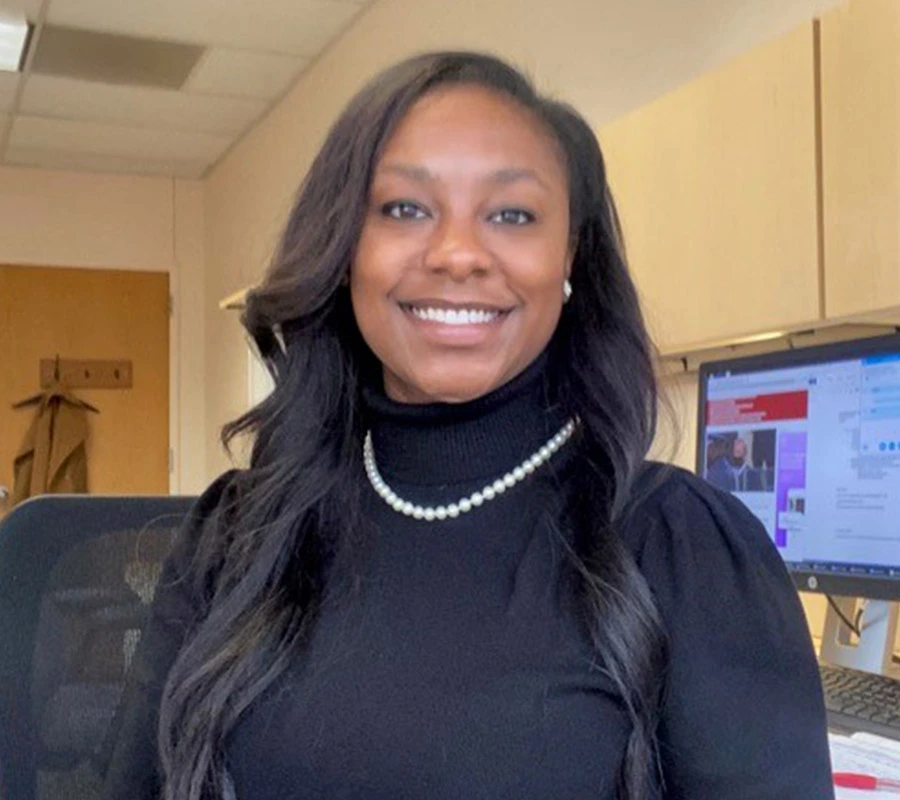April is Sarcoidosis Awareness Month. To help bring light to this rare disease we sat down with Rhonda Jenkins, a program manager at the Respiratory Institute within Cleveland Clinic, to tell us about the important role she plays in connecting patients with resources and the community with understanding.
What is sarcoidosis?
Sarcoidosis is an inflammatory disease in which the immune system overreacts, causing clusters of inflamed tissue called “granulomas” to form in different organs of the body. It most commonly affects the lungs and lymph nodes, but can also affect the eyes, skin, heart and nervous system. Sarcoidosis is a rare lung disease, with fewer than 200,000 estimated cases in the United States. Symptoms vary from person to person, and with good treatment and follow-up, may improve so you feel more like yourself.
Q: What is your role at the clinic and how do you help?
A: I am the Program Manager for Community Outreach for sarcoidosis. I lead several initiatives all aimed to support individuals living with sarcoidosis in getting the best care and support possible. Much of my work involves working directly with patients and learning from them which aspects of their care are challenging and if they are lacking resources to achieve optimal wellness. For example, some people living with sarcoidosis are not able to work or are unable to do the exact job they had been doing. I assist with connecting them to work resources or point them to support for applying for disability. I have the flexibility to meet with them in person while they are in the clinic or speak with them on the phone when concerns arise.
I also work to raise awareness of sarcoidosis in the community, coordinating learning opportunities for virtual, and eventually in-person, talks to share information about sarcoidosis symptoms, diagnosis and management with local churches, health centers and other community sites.
Q: What do you wish people knew about sarcoidosis?
A: Before I worked with people living with sarcoidosis, I supported patients recovering from traumatic accidents or injuries. I’ve noticed a difference in community understanding between a patient with an amputated limb and the patients I support now who live with chronic fatigue or pain. With sarcoidosis, the symptoms often aren’t visible to the world and that can make understanding more difficult.
I would ask that others not judge folks that have symptoms that seem vague or unusual. People living with sarcoidosis can really struggle, and sometimes they express to me that they find that others get so caught up in understanding the disease they forget to focus on helpful action. It’s great to want to learn more about the disease but even better to follow up with the “how can I help?” that is so readily offered to others with more well-known conditions.
Q: What advice do you have for patients living with sarcoidosis?
A: Never give up! You know your body best and you know if something isn’t right. Continue to seek answers, second opinions if needed, to make sure you are getting the answers you seek. And be your own advocate. If you are on a medication and you don’t feel it is working, then talk to your doctor about other options. Or if you are given directions to get labs regularly and you don’t understand where the lab is, how often to go, who to call to get an appointment, how that gets billed, what the tests are for, or a host of other questions, you can ask to speak with someone who has a job like mine to help navigate through the health system, so you get the care you need.
It’s important to have someone in your corner, a friend or family member, who you can count to help you navigate this disease.
Q: What words of encouragement do you have for patients living with sarcoidosis?
A: We have a team of amazing doctors who are specifically dedicated to this disease, to finding and helping patients living with sarcoidosis achieve their optimal health. Along with national organizations like the American Lung Association and Foundation for Sarcoidosis Research, are working together to support patients now and in the future with new and better treatments, and ways to diagnose this disease earlier. I really feel like it is important for patients and their families to know that we are all working together for a common goal, which is to support them on this journey.
You can learn more about sarcoidosis by visiting Lung.org/sarcoidosis or Stopsarcoidosis.org. The American Lung Association and Foundation for Sarcoidosis Research work collaboratively to connect with patients, clinics, providers and the general public to raise awareness of sarcoidosis and support for individuals living with this disease.
Support for this partnership was provided by an unrestricted educational grant from Mallinckrodt Pharmaceuticals.
Blog last updated: August 27, 2023



